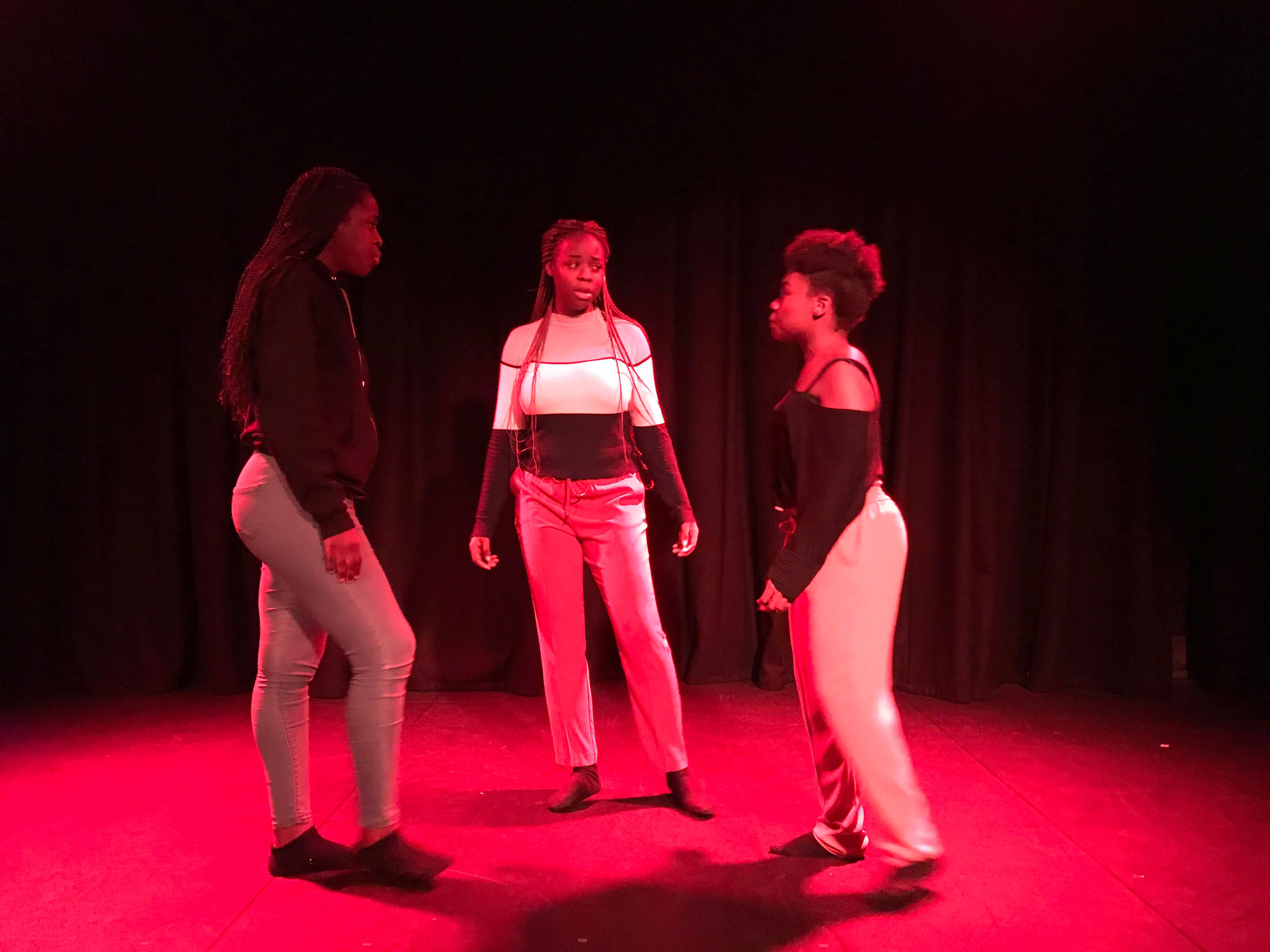SELMA REZGUI reviews the second night of Reclamation at the Bloomsbury Studio.
A multi-disciplinary celebration of BAME writers, directors and performers at UCL, the second night of Reclamation is an unambiguous success. The line-up includes original poetry, plays, monologues and improvisation, covering an extensive range of themes, settings and genres, all created or performed by BAME students.
The first piece of the evening is This Must be the Place, written and directed by one of Reclamation’s organisers, Ava Davies. The short play comprised a series of scenarios, performed by three actors who flow impressively between roles and scenes. The play takes on what it is to be mixed race, to be exoticised, not white enough, not brown enough, to be attacked for being a black woman standing up for herself and derided for not doing so. Each instance, taken by itself, is not individually much to write home about; these encounters are so woven into the fabric of the lives of all women of colour (who make up more than half of the audience – this is an evening largely by WOC, for WOC), that they barely register. Put together like this, though, a relentless stream of one slight or thinly veiled racist comment after the other, their cumulative effect becomes clear.
The evening comprises two longer plays, between which actors perform monologues, read poems or prose pieces. For Coloured Girls Who Have Considered Suicide / When the Rainbow is Enuf by Ntozake Shange is the second play, tracing three black women, (Lady in Red, Lady in Yellow, and Lady in Green) struggling to own their experiences. This visually understated piece incorporates dance and movement as much as it does words to navigate sexual assault and betrayal by the men we think we know, and the complex desire to ‘think our way out of feeling.’ Painful to watch at times, the performances in this piece are excellent. The three actors’ voices and bodies are almost in competition, and their movements, at times fluid, at times slightly awkward, show the strained relationship between a black woman’s physical and intellectual experiences.

The monologues and poetry which are read and performed are also of consistently high quality. Sadhbha OB’s reading of Alias (written by me lol) is measured but bubbles with underlying frustration, exhaustion, anger and strength. Tracy Achonwa’s I’m Tired is colourful and creative, culminating in the powerful “I’m exhausted, but I have to stay woke.” She sits on the floor in the middle of the stage, surrounded by a brightly eclectic collection of items – some practical, some not, taking some into her hands as she lists why she’s tired, and why it’s ok for her to be tired, because as a black woman this world is a tiring place to exist in.
KT Massey performs the poem ‘Women I have Loved.’ It’s one of the standout moments of the showcase, with Massey taking the audience with her to meet all the women she has loved. Her mother, her sister, friends, first romances – anyone with whom she has had a meaningful relationship is included in her love song to women, specifically to her women. Massey’s encyclopaedia of beloved women is inclusive and true to life: she includes the first girl she had a crush on, a childhood friend who’s trans and who she wishes she’d been there for, and her sister whose eating disorder threatened their entire family.
The final act is a piece of high-concept improvised comedy, The Archive, put on by the company the Blank Slates. The idea is to show how stories are like Chinese whispers, easily getting lost and warped from one telling to the next. It’s the 41st Century, and historians are trying to unlock the emotional lives of their 21st Century predecessors. Dwayne Thompson, who acts as a charismatic host, calls for audience members to contribute examples of times they have felt certain emotions – pride, shame, etc. – and those anecdotes are then played out by the cast of four performers. The jokes land with varying degrees of success, but improvisation is notoriously difficult to pull off, and the cast respond creatively and remarkably quickly to the audience’s prompts. Thompson especially wins the audience over, drawing the strands together and ensuring they maintain a direction.
Reclamation is a necessary and brilliantly executed collection of theatre and performance. The packed auditorium is palpably grateful that this opportunity to showcase BAME creativity at UCL has been provided, and that we can be celebrated and listened to. Its scope is wide, but nothing feels out of place here. The sincere, the shocking and the comic sit comfortably side by side. Hopefully, the success of this showcase will set a precedent for more diverse and inclusive theatre at UCL and beyond.
Reclamation ran on 9th and 10th March. Find more information here.
Featured image courtesy of Maria Düster.





